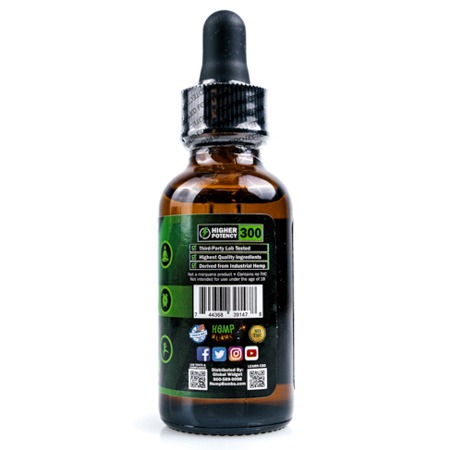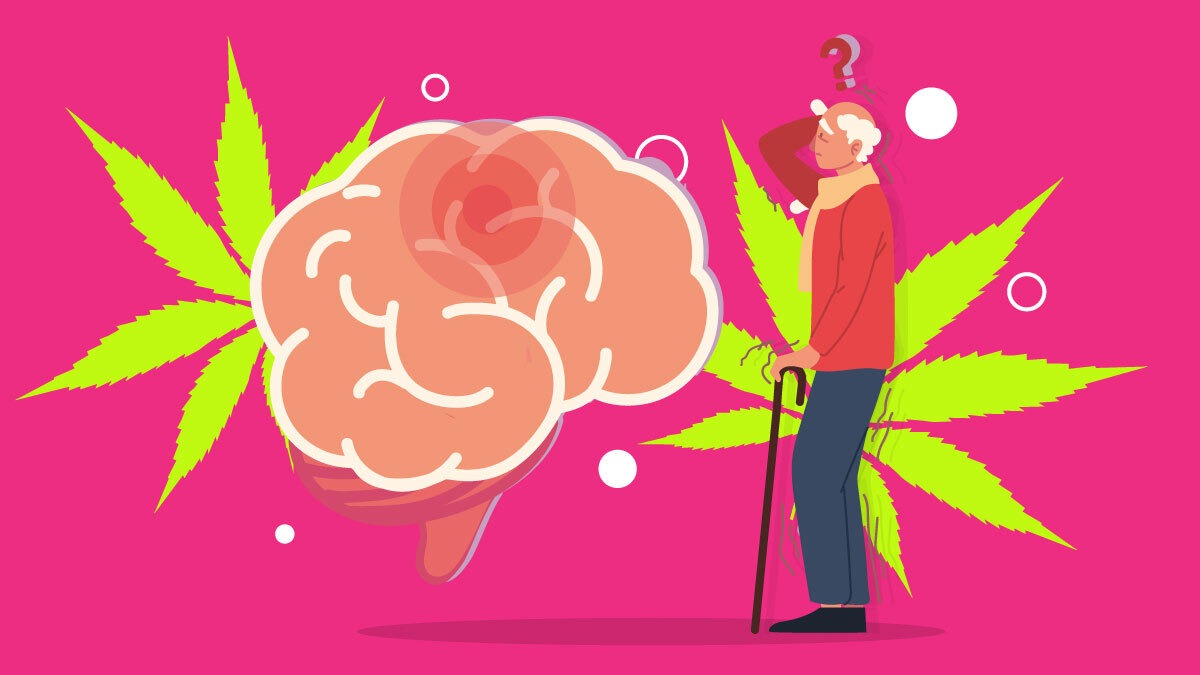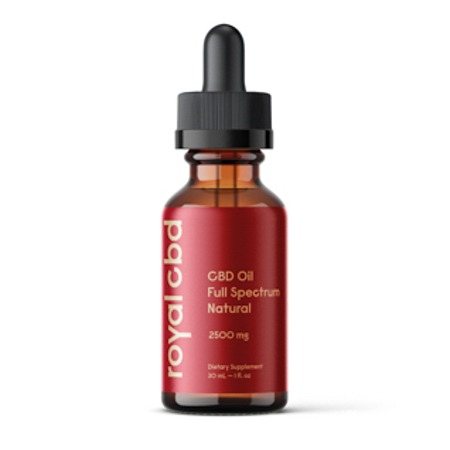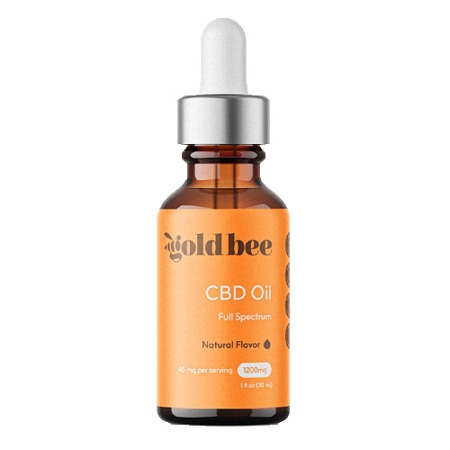60,000 Americans are diagnosed with Parkinson’s disease (PD) every year and over 10 million people suffer from the disease worldwide [1].
Parkinson’s medications such as carbidopa-levodopa are effective at curbing PD’s motor-related symptoms. However, long-term use can lead to negative side effects and the drug doesn’t combat non-motor symptoms such as depression.
CBD may combat motor-related and non-motor-related symptoms. The cannabinoid may also help reduce the side effects of Parkinson’s medication.
In this article, we’ll be looking at the benefits of CBD and how it can be used to treat Parkinson’s.
What is Parkinson’s Disease?

Parkinson’s disease (PD) is a neurological disease that affects the nervous system. It’s a progressive disorder that gradually gets worse over time. Parkinson’s in young people is rare, with people over the age of 60 most susceptible to the disease.
The symptoms of Parkinson’s disease start off mild and gradually get worse as the disease progresses. Symptoms can start with trembling, shaking, and stiffness, eventually leading to difficulty walking, talking, keeping balance, and coordination.
In severe cases, Parkinson’s disease can also lead to Parkinson’s disease dementia (PDD). This development of the disease affects the patient’s cognitive function. Making simple tasks, memory recollection, and decision-making extremely difficult.
The Benefits of CBD for Parkinson’s Disease
CBD has several benefits for Parkinson’s disease. These benefits have the potential to control PD symptoms, reduce inflammatory pain, and increase the quality of life of Parkinson’s patients.
So, what benefits CBD can help with Parkinson’s?
1. CBD May Reduce Muscle Tremors
Muscle tremors are a defining symptom of Parkinson’s disease. It’s often the tell-tale sign of early-onset Parkinson’s. Tremors can severely impact a person’s quality of life and prevent them from completing simple daily tasks.
Research shows that CBD may improve the muscle tremors associated with Parkinson’s [2].
Studies that look into CBD’s effects on other neurological disorders such as multiple sclerosis (MS) have also discovered a reduction in muscle tremors and spasms [3].
The research is promising and is backed by plenty of anecdotal research from families affected by Parkinson’s disease.
2. CBD May Reduce Brain Inflammation
Brain inflammation is closely associated with Parkinson’s disease. The symptoms of PD (tremors, stiffness, and impaired balance) are a result of the loss of dopaminergic neurons.
As the disease progresses, the body retaliates with an enhanced inflammatory response, causing inflammation in the brain [4]. As inflammation in the brain increases, the neurodegenerative processes speed up as well.
Although it’s still unclear whether inflammation is the main cause of Parkinson’s, we do know that an enhanced inflammatory response can worsen the condition over time.
Lowering inflammation is a key treatment for Parkinson’s disease. With less inflammation in the brain, the neurons have a chance of recovery — slowing down the progression of the disease.
CBD has anti-inflammatory properties [5].
Research shows that cannabidiol may reduce inflammation in the brain and slow down the body’s enhanced inflammatory response in people with neuroinflammatory disorders [6].
The cannabinoid modulates several inflammatory processes through the endocannabinoid system (ECS). Unlike anti-inflammatory painkillers that simply block inflammation, CBD gets to the source of the problem. This could mean CBD is more effective over the long term.
3. CBD May Alleviate Stress, Anxiety, and Depression
Depression, stress, and anxiety are a large part of Parkinson’s disease.
Unfortunately, due to a change in brain chemistry as the disease progresses, it’s common for people with PD to develop these mental conditions.
Combine a change in brain chemistry with difficulty completing daily tasks and a lack of social interaction, it’s easy to see why PD patients can become severely stressed, depressed, and anxious.
CBD may ease stress and anxiety in people with Parkinson’s. Studies have discovered CBD’s potential as a treatment for several different anxiety disorders [7]. Other research also indicates that CBD has antidepressant-like qualities [8].
Reducing stress, anxiety, and depression in Parkinson’s patients will greatly improve their quality of life. Using CBD could be a way to regulate emotions and balance mood without using antidepressant prescription drugs.
4. CBD May Support Dopamine Production
Parkinson’s disease causes the dopamine-producing nerve cells (dopaminergic neurons) in the brain to die.
When there’s a lack of dopamine, the nerve cells fire but struggle to transmit messages from brain to body. PD symptoms such as tremors, shaking, and stiffness occurs because of this factor.
As some studies suggest, CBD may improve dopamine production by interacting with GPR3, GPR6, and GPR12 receptors in the brain [9].
Although research into CBD’s effects on dopamine levels is relatively young, the discoveries being made are certainly promising. If CBD does increase dopamine levels in Parkinson’s patients, it could be the reason the cannabinoid can reduce tremors so quickly.
5. CBD May Improve Sleep
People with PD often suffer from sleep disorders.
It’s common for a person with Parkinson’s to struggle falling asleep and wake up often in the night. This is due to a number of reasons:
- Muscle movements & contractions at bedtime
- Muscle movements & contractions during sleep
- Tremors that make getting comfortable in bed difficult
- Painful cramps during the night
- Feelings of anxiety and stress
- Side effects of PD medications
CBD can improve both sleep onset and quality of sleep [10].
The cannabinoid can help Parkinson’s patients get to sleep and stay well-rested because of several benefits. When CBD is consumed before bed, the tremor-reducing and antispasmodic qualities may make it easy to fall asleep.
The pain-relieving and anti-inflammatory qualities of CBD may also help someone with Parkinson’s get a full night’s rest.
Relief from stress, anxiety, and depression will also stop the mind racing and allow for faster sleep onset.
What’s Better for Parkinson’s Disease: Full-spectrum or CBD Isolate?

If you’ve looked into CBD before you may have heard the terms CBD isolate, broad-spectrum, and full-spectrum.
So, what do these labels mean and what’s the difference between the three?
Full-spectrum CBD – an extract of the hemp plant that contains CBD (cannabidiol) as well as all the other active cannabinoids and terpenes present in the plant. Full-spectrum CBD does contain THC in levels below 0.3%.
Full-spectrum CBD doesn’t contain enough THC to impair the user. However, it may show up during drug screening.
Broad-spectrum CBD – an extract of the hemp plant that contains CBD and all the other naturally present cannabinoids and terpenes — excluding THC. Broad-spectrum extracts don’t impair the user and don’t show up on drug tests.
CBD isolate – a pure extract of the hemp plant that contains only CBD. No other active cannabinoids or terpenes are present in CBD isolate products.
The Best CBD for Parkinson’s Disease
The best CBD for Parkinson’s disease is full-spectrum. This is due to the entourage effect [11].
Studies show that CBD is far more effective at treating a wide variety of conditions when it’s combined with the other cannabinoids and terpenes present in hemp or cannabis. This is known as the entourage effect.
Broad-spectrum CBD also provides the benefits of the entourage effect. However, it doesn’t contain any THC and usually, cannabinoid levels are reduced during the THC isolation and removal process.
CBD isolates do not provide the entourage effect and are considered the least effective form of CBD for Parkinson’s disease. CBD isolates — although not as effective as full-spectrum extracts — are perfect for people who react negatively to other compounds present in hemp.
CBD and Carbidopa-Levodopa: Can You Use CBD with This Parkinson’s Medication?
Carbidopa-levodopa is commonly used in the treatment of Parkinson’s disease.
Levodopa turns to dopamine in the brain and carbidopa prevents the breakdown of levodopa in the bloodstream. In turn, this helps reduce Parkinson’s motor-related symptoms (tremors and muscle stiffness).
This Parkinson’s medication is considered the most effective treatment for the disease. It effectively reduces motor symptoms however it doesn’t combat any non-motor symptoms (depression, anxiety, sleep issues).
The long-term use of carbidopa-levodopa can lead to several side effects such as anxiety, agitation, nausea, and confusion. The drug can also induce tremors at high doses.
CBD may combat both motor and non-motor symptoms, as well as help, reduce the side effects of carbidopa-levodopa.
CBD is considered safe to use alongside carbidopa-levodopa. However, it’s important to always consult your doctor before using CBD with other medications.
How to Use CBD for Parkinson’s Disease

1. What are the Best CBD Products for Parkinson’s?
A) CBD Oil
CBD oil is the simplest form of CBD. Multiple potencies are available and adjusting dosage throughout the day is accurate and easy.
The oil is applied under the tongue using a dropper, so the active cannabinoids in the oil can be sublingually absorbed.
Using CBD oil is one of the most bioavailable ways to consume the cannabinoid. For Parkinson’s, the effects of CBD can be noticed 15 to 30 minutes after the first dose, lasting up to around six hours depending on potency and dosage.
B) CBD Edibles
CBD edibles come in many forms. Gummies are the most popular type of CBD-infused edible. They offer an easy and accurate way to consume cannabidiol without any taste or need for the sublingual application.
Edibles are perfect for Parkinson’s patients that want an easy way to supplement with CBD without the hassle of using a dropper full of oil. They’re especially good during periods of tremor and spasticity.
They do take longer to work than oil with noticeable effects on symptoms appearing after one to two hours and lasting for up to 10 hours depending on potency.
C) CBD Capsules
CBD capsules are a convenient way to consume an accurate amount of CBD without tasting it. They come in dry capsules and soft gel varieties, but both types work in the same way.
They are ideal to keep in a pillbox with other daily medications for ease. Just be sure to check with a doctor before consuming CBD alongside other medications.
Much like edibles, capsules do have a delayed onset. Noticeable effects start appearing after one hour, lasting up between six and eight hours.
D) CBD Vape Pens
CBD can be inhaled using a CBD vape pen. CBD extract is combined with vegetable glycerin and propylene glycol.
The active cannabinoids in the extract (including CBD) become highly bioavailable when vaporized and inhaled. The effects can be noticed five minutes after the first dose. However, the effects wear off in two to four hours.
CBD vape pens are excellent for immediate relief from symptoms. Vape pens work best for Parkinson’s disease when combined with a sublingual or edible CBD product.
Due to the nature of this consumption method, it’s not recommended for people with respiratory illnesses such as asthma or emphysema.
2. How Often Should You Use CBD for Parkinson’s?
How often you use CBD for Parkinson’s disease depends on the type of CBD product you choose to use.
As mentioned previously, CBD products differ in bioavailability. This affects the onset time and the longevity of the effects.
The bioavailability of the product you use will determine how often you should use CBD for Parkinson’s.
To break it down, we have provided a table below with everything you need to know:
- CBD Type — the CBD product consumed
- Absorption time — the time taken from first dose too noticeable effects
- Longevity — the time the effects last for
- Supplement Time — how often you should take another dose of CBD
| CBD Type | Absorption Time | Longevity | Supplement Every: |
| CBD Oil | 15 to 30 minutes | 4 to 6 hours | 4 hours |
| CBD Edibles | 1 to 2 hours | 8 to 10 hours | 7 hours |
| CBD Capsules | 1 to 2 hours | 6 to 8 hours | 5 to 6 hours |
| CBD Vape Pens | 5 to 15 minutes | 2 to 4 hours | 2 hours |
3. Recommended CBD Dosage for Parkinson’s Disease
Everyone’s body reacts differently to CBD. This makes recommending exact doses of CBD for medical issues difficult.
The best way to use CBD for Parkinson’s is to start with a low dose and increase the potency of the dose gradually.
Start with a low dose of two to five milligrams every two to seven hours — depending on the CBD product consumed (see table above).
If after two days there are no noticeable effects increase the dose by one to two milligrams.
Continue this process until you find the optimum dose.
What is the Best CBD Oil Brand for Parkinson’s Disease in Our Opinion?
1. Royal CBD
Royal CBD is a reputable CBD brand that manufacturers high-quality premium CBD.
It has a wide range of products on offer available in full-spectrum, broad-spectrum, and CBD isolate. You’ll find CBD oil, edibles, capsules, and vape pens on their menu in multiple potencies.
Royal CBD uses a CO2 extraction method using organic US-grown hemp. This produces high-quality CBD with high percentages of cannabidiol and other active cannabinoids and terpenes (in full- and broad-spectrum products).
We recommend Royal CBD’s full-spectrum 2500 mg oil for Parkinson’s disease. CBD extract is mixed with MCT and coconut oil to increase the CBD oil’s bioavailability. This makes for a fast-acting and long-lasting supplement.
Key Points:
- Premium CBD extracts
- Full-spectrum, broad-spectrum, & CBD isolate on offer
- Extracted from organic hemp using CO2 extraction
- Multiple potencies & product types available
- Great customer service
- Excellent cannabinoid profiles in their full- & broad-spectrum products
- Third-party lab tested
2. Gold Bee
Gold Bee CBD is a small CBD company that produces high-quality CBD from US-grown organic hemp. It uses a slow-diffusion extraction technique to create CBD products with a rich cannabinoid profile.
Although Gold Bee CBD doesn’t have as large a product range as some other companies, it makes up for its lack of choice with quality. You’ll find CBD oil, gummies, honey sticks, and soft gel capsules on the menu, all of which are effective for Parkinson’s.
Excluding the honey sticks, all of Gold Bee CBD’s products are 100% vegan and gluten-free.
Key Points:
- High-quality CBD
- Full- & broad-spectrum CBD available
- Limited potency options available
- Made from organic hemp using a slow-diffusion extraction method
- 100% vegan CBD (excluding their honey sticks)
- Excellent cannabinoid profiles in their extracts
- Third-party lab tested
3. Hemp Bombs CBD

Hemp Bombs CBD has a wide selection of CBD isolate products. Although the company doesn’t offer any full- or broad-spectrum products, it does have multiple potencies and product types available.
Hemp Bombs CBD is the best place to look if you want to find a pure CBD extract to treat Parkinson’s disease. Although full- and broad-spectrum CBD is considered more effective due to the entourage effect, CBD isolates may also help reduce Parkinson’s symptoms.
We recommend medium- to high-potency oils and gummies for people with Parkinson’s that cannot consume the other active cannabinoids present in hemp.
Key Points:
- CBD isolates only
- Multiple potencies available
- Extensive product range
- Extracted from US-grown organic hemp
- Third-party lab tested
Final Thoughts: Does CBD Work for Parkinson’s Disease?
CBD is certainly a promising treatment for Parkinson’s disease.
It may reduce motor symptoms, improve non-motor symptoms, and improve the quality of life of people suffering from PD.
Not only may CBD help combat tremors, muscle stiffness, and joint pain, it may also help reduce anxiety, depression, and promote healthy sleep.
There’s plenty of scientific evidence that shows CBD’s effectiveness as a Parkinson’s treatment. Every year, new studies arise that further outline CBD’s potential as a treatment for neurological conditions.
When selecting a CBD product for treating Parkinson’s, make sure to consult your doctor first if you’re taking other medications. Always source CBD from a reputable supplier that displays third-party lab results.
When taking CBD for the first time, start with a low dose and work up the dose gradually until you see the Parkinson’s symptoms reside.
References Used In This Article
- Kluger, B., Triolo, P., Jones, W., & Jankovic, J. (2015). The therapeutic potential of cannabinoids for movement disorders. Movement disorders, 30(3), 313-327.
- Malfitano, A. M., Proto, M. C., & Bifulco, M. (2008). Cannabinoids in the management of spasticity associated with multiple sclerosis. Neuropsychiatric disease and treatment, 4(5), 847.
- Stojkovska, I., Wagner, B. M., & Morrison, B. E. (2015). Parkinson’s disease and enhanced inflammatory response. Experimental biology and medicine, 240(11), 1387-1395.
- Atalay, S., Jarocka-Karpowicz, I., & Skrzydlewska, E. (2020). Antioxidative and anti-inflammatory properties of cannabidiol. Antioxidants, 9(1), 21.
- M Saito, V., M Rezende, R., & L Teixeira, A. (2012). Cannabinoid modulation of neuroinflammatory disorders. Current neuropharmacology, 10(2), 159-166.
- Blessing, E. M., Steenkamp, M. M., Manzanares, J., & Marmar, C. R. (2015). Cannabidiol as a potential treatment for anxiety disorders. Neurotherapeutics, 12(4), 825-836.
- R de Mello Schier, A., P de Oliveira Ribeiro, N., S Coutinho, D., Machado, S., Arias-Carrión, O., A Crippa, J., … & C Silva, A. (2014). Antidepressant-like and anxiolytic-like effects of cannabidiol: A chemical compound of Cannabis sativa. CNS & Neurological Disorders-Drug Targets (Formerly Current Drug Targets-CNS & Neurological Disorders), 13(6), 953-960.
- Morales, P., Isawi, I., & Reggio, P. H. (2018). Towards a better understanding of the cannabinoid-related orphan receptors GPR3, GPR6, and GPR12. Drug metabolism reviews, 50(1), 74-93.
- Shannon, S., Lewis, N., Lee, H., & Hughes, S. (2019). Cannabidiol in anxiety and sleep: a large case series. The Permanente Journal, 23.
- Russo, E. B. (2019). The case for the entourage effect and conventional breeding of clinical cannabis: no “strain,” no gain. Frontiers in plant science, 9, 1969.



